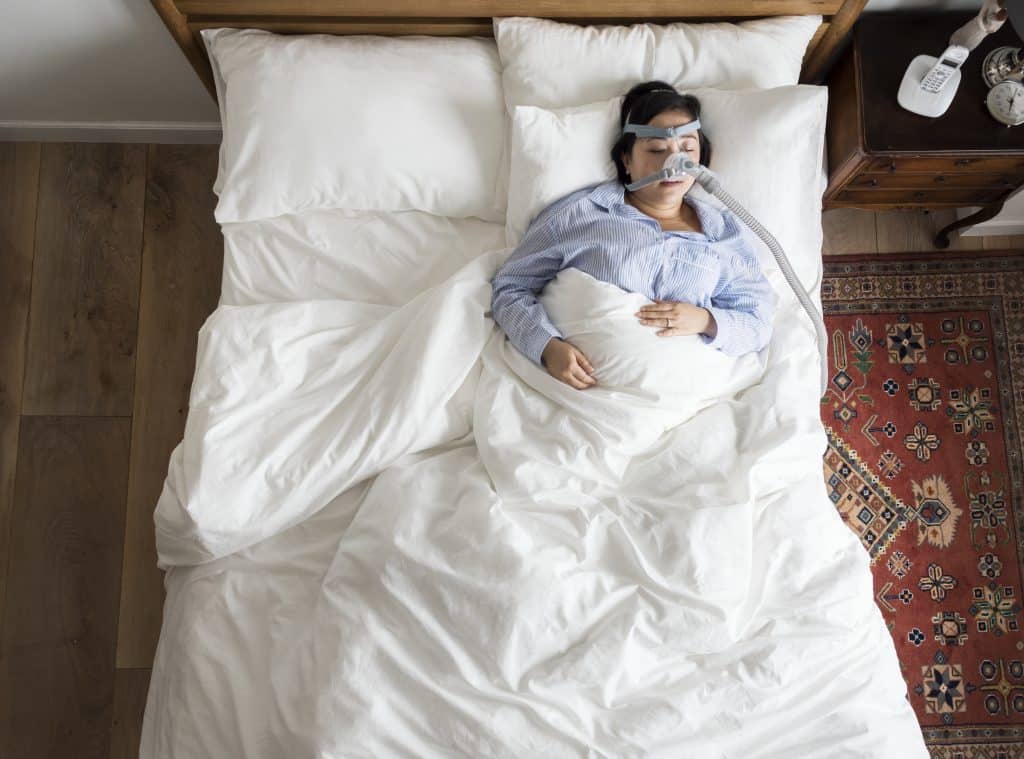Do you find yourself or your partner constantly annoyed by the loud, disruptive sound of snoring? You’re not alone—many people suffer from this embarrassing and annoying nightly problem. However, all hope is not lost! You can do several things to improve your sleep quality and reduce the severity of (or even eliminate) snoring. This article will provide actionable tips to help you get a more restful night’s sleep.
Contents
How And Why Does Snoring Occur?

Snoring is common for millions of people and can become an annoying problem for those around them. Snoring occurs when the soft tissues in the head and throat relax during sleep, resulting in a vibrating sound. It is more likely to occur on a person’s back due to their tongue pushing against their palate. While several factors play into snoring, such as allergies or weight, finding the root cause can lead to ways of alleviating it.
Treatments can range from lifestyle changes like losing weight and avoiding alcohol to using specialized pillows which promote breathing through the night. Regardless of why someone snores, options are available to help limit its disruptive effects on the snorer and those around them.
Tips To Stop Snoring
It’s no secret that snoring can be disruptive and annoying. Fortunately, there are several steps you can take to reduce or eliminate your snoring. Below are some tips to help you start snoring less:
Sleep On Your Side

Sleep on your side to stop snoring. This simple technique can help reduce snoring, as it keeps the airways open and allows you to breathe easier. It works best if you can maintain your side position throughout the night because when you roll onto your back, the soft tissue in your throat collapses and blocks the airway, resulting in more loud snoring.
If sleeping that way doesn’t come naturally to you, try using a body pillow or a special headband that keeps you in your side sleeping position all night long. Finding the right posture for a successful night’s rest is crucial for reducing snoring – remember, always sleep on your side!
Try Nasal Strips

Nasal strips can be an effective tool for avoiding snoring. They gently lift and open the nasal passages, making breathing easier during sleep. This reduces the vibration from snoring by allowing more oxygen to enter through the nose. What’s more, nasal strips are easy to use—simply place them across the bridge of your nose before going to bed.
Not only do they aid in reducing loud snoring episodes, but they may also help alleviate sleep apnea or other related snoring issues over time. With repeated use, a good night’s rest becomes possible again with this simple yet effective remedy!
Limit Alcohol Use

One of the best tips for helping people stop snoring is to limit their alcohol consumption. Alcohol relaxes your throat muscles and cavities and excessively restricts air movement, both of which can cause snoring. It’s true that most people don’t intend to drink too much, so it’s essential to be mindful when drinking alcohol by not overdoing it or consuming it right before bedtime.
Furthermore, regularly drinking alcohol beyond what you consider moderation can lead to long-term changes that can reduce throat muscle tone even when sober, making snoring more likely no matter how little is consumed. So while having the occasional drink shouldn’t be avoided, increasing the number of drinks or drinking right before going to bed should be avoided if you’re looking to stop snoring.
Quit Smoking

Quitting smoking effectively reduces snoring, which can be disruptive for the snorer and anyone sleeping next to them. This health issue is caused when the walls of the throat relax and narrow during sleep, and the smoke from cigarettes can irritate these tissues directly, making them more likely to collapse. Additionally, nicotine increases alertness, further disrupting sleep-wake cycles, so quitting smoking will likely have a double effect on reducing snoring.
Although it’s not easy to quit once a tobacco habit has begun, many options exist to help smokers make this transition. For instance, speaking with a medical professional about potential prescription medications can help to manage cravings associated with quitting smoking. Reaching out to support groups or family members can make all the difference when trying to quit smoking.
Lose Weight

Studies show that those who are overweight are more likely to suffer from the nightly grunts and groans of snoring due to enlarged fatty tissue in their throat. If you struggle with snoring, one potential solution could be to shed those extra pounds. Even losing as little as 10% of your total body weight can make a big difference.
Still, it is no easy task to combat, but diet changes and regular exercise have been proven effective solutions for reducing snoring caused by being overweight. It’s also important to talk with your doctor before starting any new routines associated with weight loss and discuss how best to achieve your desired results.
Get Enough Sleep

Getting enough sleep is essential to reduce snoring. Studies show that snoring is more common in those who do not get seven to eight hours of sleep. A major cause of snoring is fatigue, and not getting enough rest weakens the throat muscles, allowing them to close over during sleep. It also increases inflammation in the airways, making it harder for air to flow in and out freely as you breathe.
During the day, ensure you follow a healthy sleep schedule by avoiding napping whenever possible and going to bed consistently each night. This will help ensure that your body can naturally reset itself overnight and put an end to the days of loud snoring! For this reason, getting adequate sleep every night can reduce snoring.
Treat Any Nasal Congestion Or Obstructions

One of the most common causes of snoring is an obstruction or congestion in the nose, such as a deviated septum, allergies, colds, and other nasal issues. In these cases, treatment may involve using steroid sprays to reduce inflammation and open the airways. Depending on the severity of your nasal passage blockage, you may require more involved treatments such as surgery or breathing devices.
Improved breathing can increase energy levels, mood, and physical performance. Not only can this help you stop snoring, but it can lead to better overall health. So, if treating any nasal congestion or obstruction stops you from getting a good night’s sleep, don’t wait to seek medical advice and get back on track with a healthy sleeping routine.
Get A Handle On Snoring With These Tips!
In conclusion, snoring can be a nuisance for the snorer and anyone who has to sleep next to them. Several lifestyle changes can help reduce snoring and promote better overall health. Not only will quitting smoking help with this issue, but losing weight, getting enough rest, and treating any nasal congestion or obstructions could make a difference. With the right approaches, snoring can become a thing of the past! With these tips, you can enjoy more restful nights and healthier days ahead by getting a handle on snoring. Good luck and happy sleeping!


